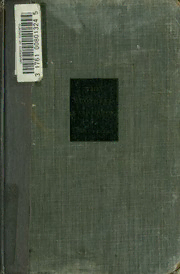
The brothers Karamazov PDF
Preview The brothers Karamazov
^rcsettteb to of tI|C Pntlierstly of Toronto Dr. S. S. Lightjnfc.n Digitized by the Internet Archive in 2010 with funding from University of Toronto http://www.archive.org/details/brotherskaramazOOdost THE MODERN LIBRARY OP THE WORLD'S BEST BOOKS THE BROTHERS KARAMAZOV T/yepublishers willbepleasedtosend, upon request, an illustratedfoldersettingforththepurposeandscopeof THE MODERN LIBRARY, andlistingeachvolume in the series. Every reader of books will find titles he hasbeenlookingfor,handsomelyprinted,inunabridged editions,andatanunusuallylowprice. The Brothers KARAMAZOV by Fyodor Dostoyevsky CONSTANCE GARNETT Translated iy THE MODERN LIBRARY NEW YORK • 3P& f:5V2 7 19S3 869774 Random House the publisher of is THE MODERN LIBRARY BENNETTA.CERF DONALDS. KLOPFHR • ROBERTK. HAAS Manufactured in the United States of America PrintedbyParkwayPrintingCompany BoundbyH. Wolff TRANSLATOR'S PREFACE r | A FEW words about Dostoyevsky Kimself may help the Eng- Hsh reader to understand his work. Dostoyevsky was the son of a doctor. His parents were very hardworking and deeply reHgious people, but so poor that they Hved with their five children in only two rooms. The father and mother spent their evenings in reading aloud to their children, generally from books of a serious character. Though always sickly and deUcate, Dostoyevsky came out third in the final examination of the Petersburg school of Engineering. There he had already begun his first work, "Poor Folk." This story was published by the poet Nekrassov in his re- view and was received with acclamations. The shy, unknown A youth found himself instantly something of a celebrity. brilliant and successful career seemed to open before him, but these hopes were soon dashed. In 1849 he was arrested. Though neither by temperament nor conviction a revolu- tionist, Dostoyevsky was one of a little group of young men who met together to read Fourier and Proudhon. He was ac- cused of "taking part in conversations against the censorship, of reading a letter from Byelinsky to Gogol, and of knowing of the intention to set up a printing press." Under Nicholas I, (that "stern and just man," as Maurice Baring calls him) this was enough, and he was condemned to death. After eight months' imprisonment he was with twenty-one others taken out to the Semyonovsky Square to be shot. Writing to his brother Mihail, Dostoyevsky says: "They snapped swords over our heads, and they made us put on the white shirts worn by persons condemned to death. Thereupon we were bound in threes to stakes, to suffer execution. Being the third in the row, I concluded I had only a few minutes of life before me. I thought of you and your dear ones and I contrived to kiss Plestcheiev and Dourov, who were next to me, and to bid TRANSLATOR PREFACE S them farewell. Suddenly the troops beat a tattoo, we were un- bound, brought back upon the scaffold, and informed that his Majesty had spared us our lives." The sentence was com- muted to hard labour. One of the prisoners, Grigoryev, went mad as soon as he was untied and never regained his sanity. The intense suffering of this experience left a lasting stamp on Dostoyevsky's mind. Though his religious temper led him in the end to accept every suffering with resignation and to regard it as a blessing in his own case, he constantly recurs to the subject in his writings. He describes the awful agony of the condemned man and insists on the cruelty of inflicting such torture. Then followed four years of penal servitude, spent in the company of common criminals in Siberia, where he began the "Dead House," and some years of service in a disciplinary battalion. He had shown signs of some obscure nervous disease before his arrest and this now developed into violent attacks of epi- lepsy, from which he suffered for the rest of his life. The fits occurred three or four times a year and were more frequent in periods of great strain. In 1859 he was allowed to return to Russia. He started a journal "Vremya," which was forbidden by the Censorship through a misunderstanding. In 1864 he lost his first wife and his brother Mihail. He was in terrible poverty, yet he took upon himself the—payment of his broth- er's debts. He started another journal "The Epoch," which within a few months was also prohibited. He was weighed down by debt, his brother's family was dependent on him, he was forced to write at heart-breaking speed, and is said never to have corrected his work. The later years of his life were much softened by the tenderness and devotion of his second wife. In June, 1880, he made his famous speech at the unveiling of the monument to Pushkin in Moscow and he was received with extraordinary demonstrations of love and honour. A few months later Dostoyevsky died. He was followed to the grave by a vast multitude of mourners, who "gave the hapless man the funeral of a king." He is still probably the most widely read writer in Russia. vi
